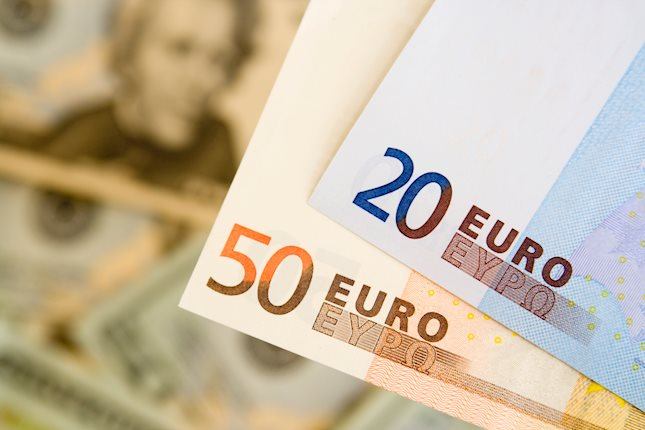- Modest rebound in sentiment forecast but index will remain in contraction.
- The unsigned phase one trade deal with China has had little positive effect as yet.
- Export orders in September were the weakest since the recession.
The Institute for Supply Management (ISM) will issue its purchasing managers’ index (PMI) for the manufacturing sector in October on Friday November 1st at 14:00 GMT, 10:00 EDT.
Forecast
The purchasing managers’ index is expected to rise to 48.9 in October from 47.8 in September and 49.1 in August. The prices paid index is projected to increase to 49.9 from 49.7. The new orders index was 47.3 in September and 47.2 in August. The employment index registered 46.3 in September and 47.4 in August.
ISM Manufacturing Report on Business
The ISM survey is based on the responses of “a group made up of more than 300 purchasing and supply executives from across the country.” These professionals respond anonymously to a “monthly questionnaire about changes in production, new orders, new export orders, imports, employment, inventories, prices, lead times, and the timeliness of supplier deliveries in their companies comparing the current month to the previous month.” The answers are tabulated into an index and rated on a scale that places the division between expansion and contraction at 50 with the first above and the latter below. *Quotations from the Institute for Supply Management website.
US China trade and manufacturing
The US trade dispute with China turned a buoyant manufacturing recovery in 2017 and 2018 into an incipient recession this year. The initial optimism that the two sides would find a deal has faded into a long drawn acrimonious confrontation. After two years of argument and escalating tariffs the October deal, as yet unsigned, will need many months of performance by both sides before it begins to lift the pessimism in the manufacturing sector.
Over the past year sentiment in manufacturing has had the steepest decline since the recession and financial crisis. From 60.8 in August 2018, a 15 year high, the purchasing managers’ index dropped into economic contraction in August with 49.1 and 47.8 in September.
Indexes for employment and new orders have fallen in line with the sentiment index. Employment has gone from 58.2 last September to 46.3 a year later. New orders have fallen from 61.8 last November to 47.3 in September.
Reuters
The new export orders index registered 41 in September down from 43.3 in August. It was the third month in contraction and the lowest reading since March 2009.
“Global trade remains the most significant issue, as demonstrated by the contraction in new export orders that began in July 2019,” noted Timothy R. Fiore the Chair of the ISM Business Survey Committee in the September release.
Manufacturing and the US consumer
Consumer demand has remained healthy in the United States. The retail sales control group which informs the government’s GDP calculation averaged a 0.4% monthly increase in the year to September.
Reuters
Consumer sentiment has also retained a positive cast though it has lost some of its record elevation of last year.
The Michigan Consumer Sentiment Index recovered to 96 in October from 92 in September. This puts it in the middle of the range of the last two years which have seen the highest sustained reading in two decades.
Reuters
Conclusion
American manufacturers are saddled with a trade war with China that has drastically reduced their own business from overseas and threatened to depress already weak global economic growth.
Domestic orders to US factories have not been the problem as US demand has remained strong. It has been the large reduction in overseas purchases of US manufactured goods, both from China due to tariffs and the balance of the world owing to slowing growth, that has pushed the factory sector into contraction.
The US China trade war has had a two-fold effect. It has directly curtailed US sales to the mainland of manufactured products and agricultural commodities. But its impact on outlook and sentiment and the fear of a generalized global trade contraction has caused a pullback in business investment and spending worldwide.
The October agreement between the US and China may be the first step in improving the global economic picture but it is too early to tell. Even if the agreement is signed as planned in November the trust abrogated over the last two years will take time to restore, and returning to prior levels of trade will take even longer and likely several additional agreements.
If the trade deal can restore optimism to the global scene US manufacturers will recover their own in short order but that will not happen in October or probably this year.
Information on these pages contains forward-looking statements that involve risks and uncertainties. Markets and instruments profiled on this page are for informational purposes only and should not in any way come across as a recommendation to buy or sell in these assets. You should do your own thorough research before making any investment decisions. FXStreet does not in any way guarantee that this information is free from mistakes, errors, or material misstatements. It also does not guarantee that this information is of a timely nature. Investing in Open Markets involves a great deal of risk, including the loss of all or a portion of your investment, as well as emotional distress. All risks, losses and costs associated with investing, including total loss of principal, are your responsibility. The views and opinions expressed in this article are those of the authors and do not necessarily reflect the official policy or position of FXStreet nor its advertisers. The author will not be held responsible for information that is found at the end of links posted on this page.
If not otherwise explicitly mentioned in the body of the article, at the time of writing, the author has no position in any stock mentioned in this article and no business relationship with any company mentioned. The author has not received compensation for writing this article, other than from FXStreet.
FXStreet and the author do not provide personalized recommendations. The author makes no representations as to the accuracy, completeness, or suitability of this information. FXStreet and the author will not be liable for any errors, omissions or any losses, injuries or damages arising from this information and its display or use. Errors and omissions excepted.
The author and FXStreet are not registered investment advisors and nothing in this article is intended to be investment advice.
Recommended Content
Editors’ Picks

EUR/USD stays near 1.0400 in thin holiday trading
EUR/USD trades with mild losses near 1.0400 on Tuesday. The expectation that the US Federal Reserve will deliver fewer rate cuts in 2025 provides some support for the US Dollar. Trading volumes are likely to remain low heading into the Christmas break.

GBP/USD struggles to find direction, holds steady near 1.2550
GBP/USD consolidates in a range at around 1.2550 on Tuesday after closing in negative territory on Monday. The US Dollar preserves its strength and makes it difficult for the pair to gain traction as trading conditions thin out on Christmas Eve.

Gold holds above $2,600, bulls non-committed on hawkish Fed outlook
Gold trades in a narrow channel above $2,600 on Tuesday, albeit lacking strong follow-through buying. Geopolitical tensions and trade war fears lend support to the safe-haven XAU/USD, while the Fed’s hawkish shift acts as a tailwind for the USD and caps the precious metal.

IRS says crypto staking should be taxed in response to lawsuit
In a filing on Monday, the US International Revenue Service stated that the rewards gotten from staking cryptocurrencies should be taxed, responding to a lawsuit from couple Joshua and Jessica Jarrett.

2025 outlook: What is next for developed economies and currencies?
As the door closes in 2024, and while the year feels like it has passed in the blink of an eye, a lot has happened. If I had to summarise it all in four words, it would be: ‘a year of surprises’.

Best Forex Brokers with Low Spreads
VERIFIED Low spreads are crucial for reducing trading costs. Explore top Forex brokers offering competitive spreads and high leverage. Compare options for EUR/USD, GBP/USD, USD/JPY, and Gold.